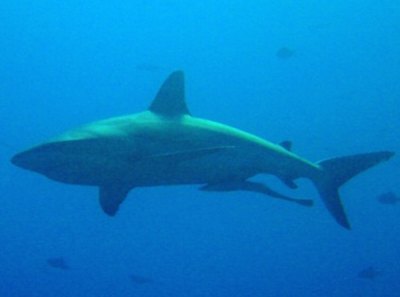Water Safety Advisory for Swimmers

Since Friday, June 26, 2015, the National Park Service (NPS), in conjunction with neighboring Emergency Management responders have responded to and investigated three incidents involving sharks and swimmers on the beaches of Cape Hatteras National Seashore.
On Friday, June 26 a 47 year old man sustained injuries from a shark while swimming in Avon, NC; on Saturday, June 27 a 17 year old male swimming near Waves, NC was bitten by a shark; on Wednesday, July 1st, a 68 year old man was bitten by a shark in front of the lifeguard beach on Ocracoke Island.
“While the National Park Service does not know why there has been an increase of these incidents, we do want to make sure our visitors are aware of them and have a safe visit to the National Seashore. We can never guarantee anyone’s safety when they enter the water. The only way to be sure you do not encounter sharks or other marine wildlife that may be harmful to humans, is to stay out of the water,” stated Superintendent David Hallac. The National Park Service will be increasing the number of visitor contacts on the beaches and posting information at key locations for visitors.
There are many inherent dangers while swimming in ocean or sound waters. Swimmers are advised to be aware of conditions and their surroundings. Sharks are a normal part of the natural environment. Presence of sharks requires that we take precautions while enjoying the ocean.
- Don’t swim too far from shore
- Stay in groups
- Avoid swimming near fishermen or in the vicinity of other aquatic activity like birds diving for fish or bait fish in the water
- Avoid swimming near fishing piers
- Avoid being in the water at twilight or during the night time hours
- Don’t go into the water if bleeding from a wound
- Leave jewelry and shining objects at home
While shark encounters are rare, people should be vigilant of marine wildlife. The above recommendations will further reduce the chances of injury.
For the latest updates, visit our website at nps.gov/caha, follow our Twitter and Instagram feeds @CapeHatterasNPS, or follow us on Facebook.



